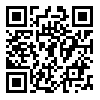Volume 13, Issue 43 (5-2024)
3 2024, 13(43): 1-8 |
Back to browse issues page
Download citation:
BibTeX | RIS | EndNote | Medlars | ProCite | Reference Manager | RefWorks
Send citation to:



BibTeX | RIS | EndNote | Medlars | ProCite | Reference Manager | RefWorks
Send citation to:
Tavakoli M, Hasani F. The Process of Lesson Planning in Teaching. 3 2024; 13 (43) :1-8
URL: http://jnrihs.ir/article-1-625-en.html
URL: http://jnrihs.ir/article-1-625-en.html
Ph.D., Department of Curriculum Planning, Islamic Azad University, Roudhen Branch, Roudhen, Iran
Abstract: (1082 Views)
The purpose of writing this article is to examine the process of lesson planning in teaching. Today, the lesson plan is considered as a road map for the teacher and student, which specifies the path of teaching and learning, or in simple language, it includes a system of thoughts, Chinese introduction, and predictions that are formed in the teacher's mind before going to class. The use of the lesson plan is very important to advance the educational goals and memorization and learning of the student. Determining the class schedule and being purposeful, motivating the teacher, and helping him are among the benefits of writing a lesson plan. Improving knowledge, developing skills, and developing thinking are also among the educational goals that are mentioned more in this article. Among the designs that are most used in education. The lesson plan is daily, monthly and yearly. The process of writing the lesson plan also includes: general, partial, behavioral goals, teaching methods, evaluation, preparation, and lesson presentation, supplementary and developmental activities. At the end of the article, suggestions were made regarding the examination of the lesson plan process in teaching.
Type of Study: Research |
Subject:
General
Received: 2024/06/28 | Accepted: 2024/05/30 | Published: 2024/05/30
Received: 2024/06/28 | Accepted: 2024/05/30 | Published: 2024/05/30
| Rights and permissions | |
 |
This work is licensed under a Creative Commons Attribution-NonCommercial 4.0 International License. |





